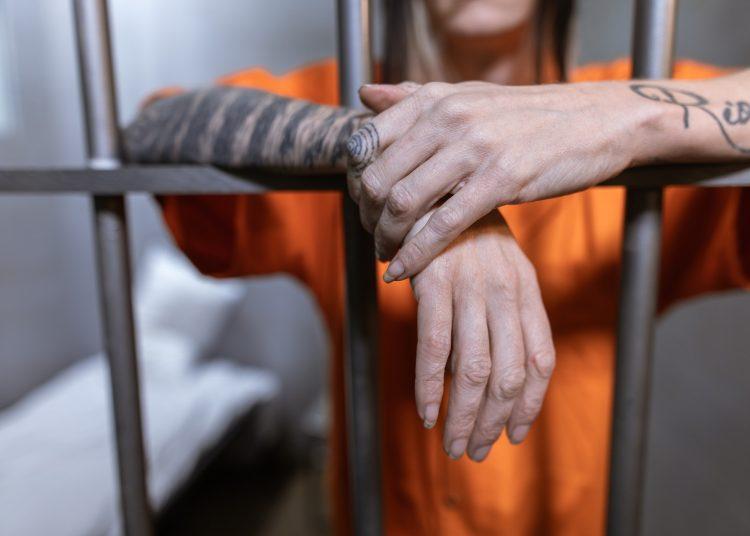DES MOINES, Iowa –The Iowa Attorney General’s Office has wrapped up a six-year effort to address untested sexual assault evidence kits throughout the state. The project has resulted in 1,606 kits tested, four criminal charges to date, and several improvements in the way kits are processed to benefit victims.
The Iowa Sexual Assault Kit Initiative (SAKI) project was created in April 2015 to address the issue of untested sexual assault kits. The project was supported by two grants awarded by the Bureau of Justice Assistance (BJA) in 2015 and 2016, totaling $3 million. The grant period ended in fall 2021.
“We applaud this six-year effort to improve how sexual assault kits are handled,” Attorney General Tom Miller said. “Not only has the SAKI program been able to reduce the number of untested sexual assault kits, it has also created meaningful and lasting changes to the processes by which state and local practitioners respond to and investigate sexual assault cases.”
Untested Sexual Assault Kits
When the SAKI project began, the AG office’s Crime Victim Assistance Division surveyed all 387 active police departments and sheriffs’ offices and found 4,275 unsubmitted sexual assault kits.
The grant protocol excluded many kits from testing for several reasons, including the lack of police reports or victim information, or being too recent. Only kits collected before April 28, 2015, could be tested under the grant.
A total of 1,606 kits were submitted for DNA testing, and those tested kits resulted in the development of 852 DNA profiles entered into CODIS, the FBI’s Combined DNA Index System.
More than 290 profiles received a CODIS match, with 26 of those profiles belonging to people previously convicted of sex crimes.
The project then referred identified cases to local law enforcement and prosecutors for follow–up investigation and contact with victims. Many of these sexual assault incidents took place 10 or more years ago. In most cases, victims opted not to re-engage with law enforcement.
To date, authorities have filed criminal charges in four cases, with two convictions:
- Dallas County, 2010 incident: A 14-year old girl reported that a 20-year old male had sex with her. When questioned, the suspect, Rahim Mohammad Dhoshdel, denied knowing the girl. The kit was never submitted for analysis. After testing under SAKI, the kit resulted in a DNA match with Dhoshdel, who was extradited from California and, in 2019, pleaded guilty to assault with intent to commit sexual abuse.
- Pottawattamie County, 2003 incident: Two girls, age 14 and 15, reported that a man they met in Omaha offered them a ride. The girls expected to go to another location in Omaha, but the man drove them to a cornfield in the Pacific Junction, Iowa, area where he pulled a knife on them and sexually assaulted both girls. Sexual assault kits were collected but never submitted for analysis. After testing through SAKI, law enforcement identified Myron Lee Brandon as the offender. On October 6, 2021, Brandon, age 43 of Pacific Junction, was found guilty in federal court of two counts of kidnapping and two counts of transportation of a minor with intent to engage in criminal sexual activity. His sentencing is scheduled for March 2022.
- Marion County, 2009 incident: After testing through SAKI, a DNA profile matched Shane Farriester, who is charged with one count of second-degree sexual abuse in August 2020. He is awaiting trial.
- Winnebago County, 2010 incident: After testing through SAKI, a DNA profile matched Billy John Tucker, and he was charged with one count of second-degree sexual abuse in November 2021.
Lab Testing Increases and Accelerates
During the time that the SAKI project was ongoing, the number of kits submitted to the Division of Criminal Investigation’s laboratory for analysis increased by 87% on average over the previous five years. This increase in DNA submissions is projected to continue into the future, and in part is due to the success of the SAKI project. Additionally, during this same time frame, DCI officials implemented a Lean Six Sigma (LSS) process efficiency effort. The efficiencies and improvements realized through LSS, along with additional positions afforded to the laboratory by the Iowa Legislature and the Iowa Governor’s Office, has allowed the lab to reduce processing time of DNA evidence on average from 6 to 9 months to 8 weeks.
“This reduction in testing time is critical,” said Sandi Tibbetts Murphy, CVAD director. “If you tell a sexual assault victim that you cannot bring charges for almost a year, you’re going to lose that victim. Two months represents a dramatic improvement for victims.”
Training and Protocols Improved
CVAD partnered with several state and local agencies, including law enforcement and prosecutors’ offices, the Iowa Air National Guard and others, to offer training and assistance in sexual assault response. In total, 2,355 individuals received training in trauma-informed sexual assault response and other SAKI-related trainings.
Additionally, SAKI funds supported the creation of a statewide forensic examiner protocol, which sets best practices of patient care and evidence collection in forensic sexual assault examinations.
In 2021, the Legislature authorized the Attorney General’s Office to create and staff a unit to train and provide technical assistance to forensic examiners, maintain updated information on available examiners across the state and promote collaborative responses to sexual assault victims.
“Track Kit” Launched
In October 2020, Miller’s Crime Victim Assistance Division completed the rollout of the Track-Kit statewide reporting system. This statewide reporting program allows survivors and practitioners to track the status of evidence kits as they move from medical facilities to law enforcement and eventually to the DCI lab for analysis. Through their own protected access, victims can determine how they want to receive status notifications.
In May 2021, the Iowa Legislature enacted Senate File 451, requiring the use of the Track Kit reporting system for an estimated 1,780 users at medical facilities, law enforcement agencies, crime laboratories, and county attorneys’ offices. The legislation also imposes requirements for the storage and disposal of kits, including requiring victim notification before disposal.
“Track Kit, along with these other changes, has increased accountability and transparency throughout the process,” Miller said.
Information for Survivors
If you are unsure if your kit was previously submitted, or if you would like to obtain information on the status of your case, please contact the Iowa SAKI Information Line at 1 800 770-1650.
Additional resources available to survivors of sexual assault can be found here.
Photo by RODNAE Productions from Pexels.
















